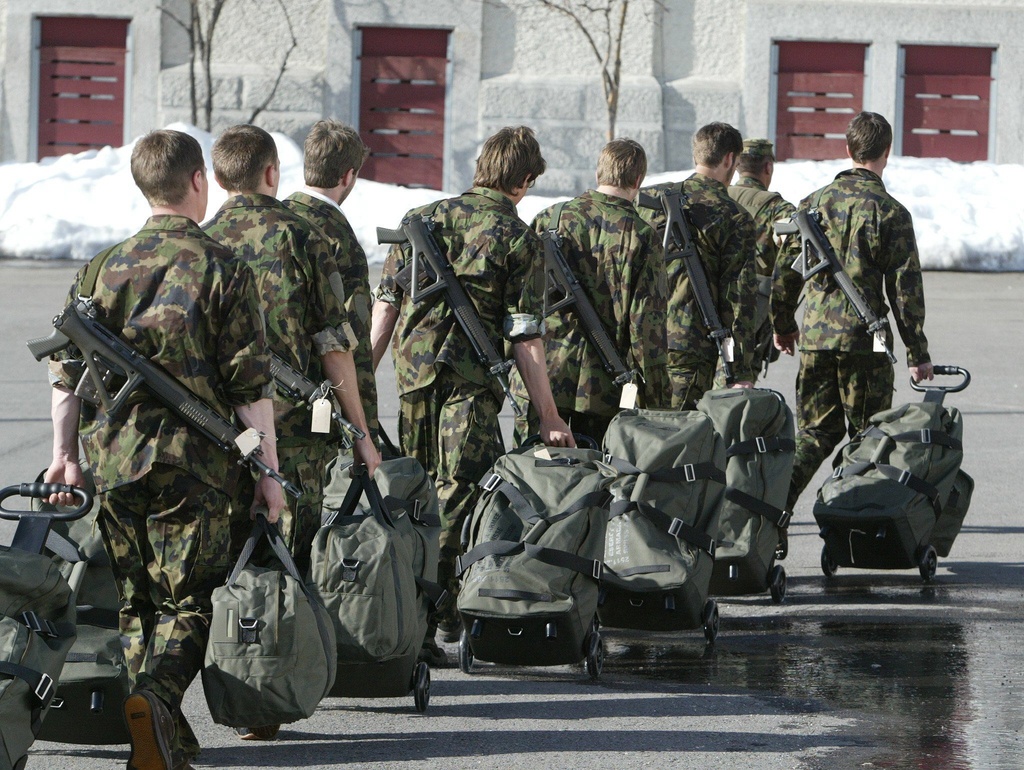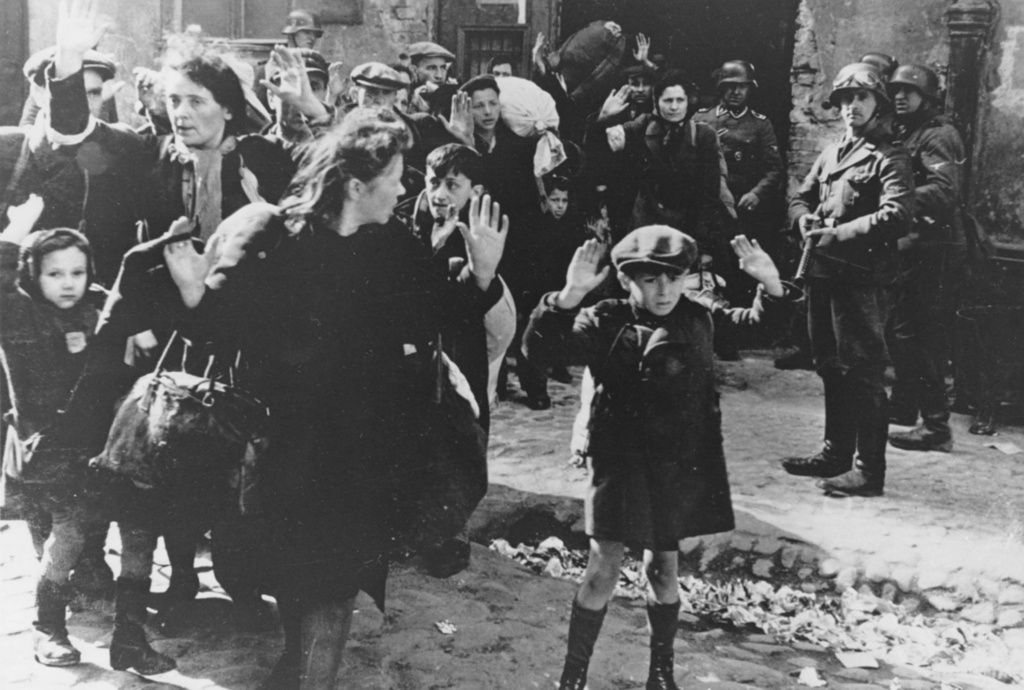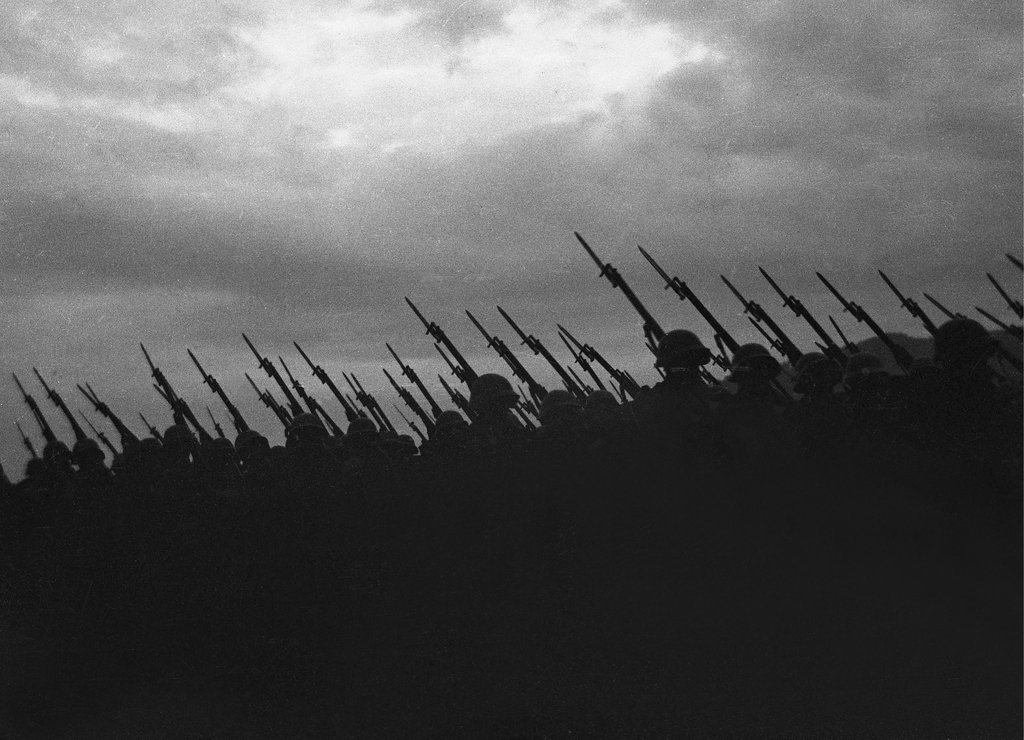Wartime radio archives come to light

During the Second World War, Switzerland’s fledgling short wave radio service was essential to its attempts to communicate its policies and actions to an external audience made up of both foreign governments and the Swiss abroad.
The archives of the Short Wave Service (SWS), founded in 1935, have been digitalised and are now available online (See link). SWS was the forerunner to Swiss Radio International (SRI) which later became swissinfo.ch.
The manuscripts of news bulletins from this dark time in Europe reveal Swiss thinking on events both out of its control and right on its doorstep as the country desperately held on to its beloved neutrality.
In Switzerland’s national languages (German, French, Italian) as well as English, Spanish and Portuguese, SWS broadcast news and analysis of military events on both sides.
It also reported on living conditions of Australian, New Zealand, South African and American POWs interned in mountain retreats, and issued sharp rebukes of external criticism of Swiss government policy.
“Switzerland finds herself today in one of the most peculiar situations of her long history. From a certain viewpoint, she is surrounded by one power only. From another viewpoint, she is surrounded, among others, by three defeated powers: Austria, France and Italy. Under these circumstances Switzerland has remained true to her traditional role of guardian of the Alpine passes,” began an English broadcast from Hermann Böschenstein in the wake of the fall of Mussolini in 1943.
The same broadcast went on to discuss dashed hopes that Italy’s fall would see a reopening of transport routes to the sea, praised the Swiss influence of the International Red Cross as “incontestable”, and noted that “all-out” training of Swiss army troops had resulted in “quite a few casualties lately” with the use of flame-throwers being responsible in some cases.
Treasure trove
Lausanne University’s François Vallotton, a specialist in contemporary audio-visual and media history in Switzerland, was unable to resist the lure of such a treasure trove of documents.
Vallotton, whose work focuses in particular on the Swiss Broadcasting Corporation (SBC) – the parent company of swissinfo.ch – convened a seminar to undertake initial research on the SWS archive documents.
The archives, which have been formatted into a database searchable by keyword, are particularly interesting for historians because the historiography of international radio services has not yet been developed, particularly in Switzerland.
Vallotton says analysis of the archives is unlikely to reinvent what is already known about Switzerland during the Second World War, but: “What is interesting is that it is a source that allows us to see the image that Switzerland wanted to present to the outside world.”
“That is something that is really new because before we examined local media which was aimed at the Swiss public.”
Broadcasts by SWS at that time were also notable for the fact that they were the first news bulletins produced by a dedicated radio editorial team; previously news bulletins had been written and read by journalists from the Swiss News Agency, a press organisation.
“The service treated events in a different manner than to the local media,” says Raphaëlle Ruppen Coutaz, who is doing his doctorate on the subject. “For historians, it’s precious because it is the only Swiss media outlet to address those abroad during the war.”
Fighting back
At times, particularly in the early days of the war, Switzerland came in for sharp criticism from the British for maintaining economic ties with Germany, and the archives show SWS was key in defending the Swiss position on this and other issues.
The SWS justified the maintenance of ties with Germany in a broadcast that argued that Switzerland was not taking sides, but wanted to maintain a “balanced and respectable” trade to ensure the provision of necessary supplies for her people.
In another broadcast on May 18, 1940, the English service issued a sharp rebuke of reports on the BBC that a “great quantity of war materials (sic)” were being accumulated in Switzerland’s western cantons.
“The Swiss High Command has neither ordered nor advised to evacuate. The Swiss Army and the Swiss people have not become alarmed by these incorrect reports. They are not in conformity with the facts,” the broadcast said. “The people and the Army … are ready with unabated will to defend their country to the utmost against every kind of aggression from whichever side it might come.”
Vallotton said that as the war escalated, the archives show SWS also took up the defence of Swiss policies in sensitive areas such as that of refugees, for which the country’s tough position was coming under increasing criticism from abroad.
“It is quite obvious that Switzerland cannot receive all the refugees who come and ask for her hospitality,” began a broadcast January 23, 1944, which ended: “We hope that our attitude will be understood even by those who had thought well to worry.”
“From 1939, the SWS promoted Switzerland’s humanitarian credentials,” says Vallotton. “With the escalation of the war, this point [refugees] becomes a pretty sensitive subject that they stop speaking of so often, even if it is only in 1942 and above all in 1943, that a certain level of criticism starts being heard from abroad. Then SWS became the tool for explaining the policy driven by the Swiss and the hardening of its position.”
Red pen of the censor
In times of war, censorship always reigned supreme, and Coutaz points out that the archived documents are often scrawled with corrections and passages rewritten by hand over the typed text.
“But we do not always know to whom the corrections should be attributed. Is it a censor who has come by and rewritten certain passages? At any rate, for some updates we can see the seal of censorship which clearly demonstrates that the texts were read and revised,” he said.
Differences too, are noticeable in the programmes presented by the different language services but it is difficult to ascertain whether these are the result of translation or the mark of the author speaking to a particular audience, says Coutaz.
“We’ve noticed some differences. For example the German version insisted that the attack on Pearl Harbor was not a surprise, but that point is not made in the French version. But you really have to go into great detail to find big differences,” he says.
Beginning in 1935, special programmes for the Swiss abroad were broadcast over short wave from the antenna of the Society of Nations at Prangins in canton Vaud.
In 1939, the Short Wave Service got its own antenna, located at Schwarzenberg in canton Bern.
In 1978, the Short Wave Service was renamed Swiss Radio International (SRI).
The radio broadcasts destined for a foreign audience reached their golden age during the Cold War. With programmes in eight languages, SRI reached an estimated five to ten million listeners around the world.
The decline of short wave began at the end of the 1980s. Political changes, such as the end of the Cold War, and technological advancements including satellite transmissions and the emergence of the internet, called into question the need to continue short wave broadcasts.
SRI broadcast its last radio programmes in 2004. From that point, the mandate to provide news about Switzerland to a foreign audience was the sole responsibility of its online service, swissinfo.ch.
At the end of the Second World War and in answer to its critics, Switzerland presented an image of itself as having had an exemplary comportment during the conflict. Scholastic history texts described a country which had remained sovereign above all due to the preparedness of its army to resist any invasion, and which had welcomed substantial numbers of refugees.
This image of Switzerland during the war was completely debunked during the 1990s, amidst the international scandal of dormant Jewish assets held in Swiss banks. Holocaust survivors and the descendants of those who perished fought to recoup the money and assets which were hidden in Switzerland during the war. The scandal took on considerable importance – the United States notably threatened to ban Swiss banks from operating inside its borders – and was concluded in 1998 when the banks agreed to pay $1.25 billion (SFr1.8 billion at the time) in compensation to Jewish organisations.
Due to the scandal, the Swiss government established an independent commission of experts in 1996 to examine Swiss policies during the war. The Bergier Commission delivered its final report in 2002. Notably it revealed that Switzerland had maintained close economic ties with the Axis countries and that the Swiss had had a very restrictive policy towards civil refugees of the conflict.
(Adapted from French by Sophie Douez)

In compliance with the JTI standards
More: SWI swissinfo.ch certified by the Journalism Trust Initiative




You can find an overview of ongoing debates with our journalists here. Please join us!
If you want to start a conversation about a topic raised in this article or want to report factual errors, email us at english@swissinfo.ch.